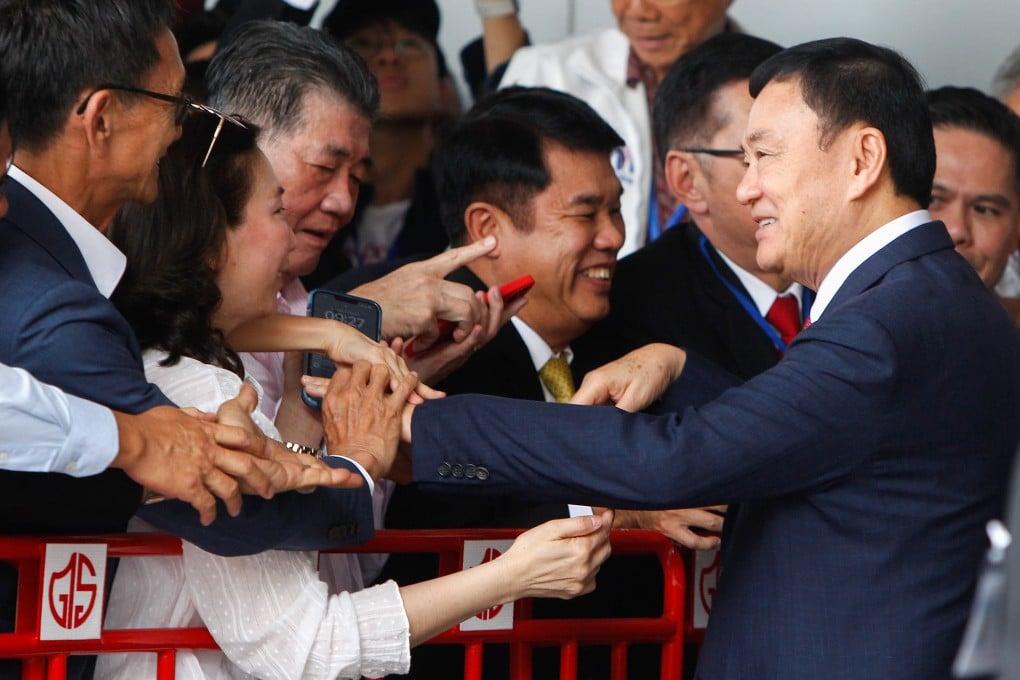Advertisement
Asian Angle | Thaksin’s back, but Thailand’s anti-democratic forces are as strong as ever
- Pheu Thai has its PM in Srettha Thavisin, but the betrayal of Move Forward Party voters – and its own supporters – could cost it at the next election
- There’s little doubt Thaksin, once free, will be the key figure operating behind the scenes – which could lead to a tussle with Srettha for influence
Reading Time:4 minutes
Why you can trust SCMP
4

More than three months after Thailand’s national elections – and many anti-democratic manoeuvres in parliament – the country finally has a new prime minister, Srettha Thavisin. But given the chaotic nature of Thai politics, this was perhaps not even the biggest news of the week.
Advertisement
Hours before the partially military-appointed Thai parliament elected Srettha to the post, one of the country’s most prominent political figures, former prime minister Thaksin Shinawatra, returned from his self-imposed exile of more than 15 years and surrendered to authorities over long-standing corruption charges.
There are now many questions about what this blockbuster day for Thai politics means for the country’s future – and Thai democracy.
Thaksin became prime minister in 2001 after a thumping election win and remained the country’s most popular politician, even through his long years of exile.
Pheu Thai is the latest incarnation of various Thaksin-aligned parties, which have won the most seats in parliament in every competitive national election since 2001 – until this year, when it finished second to the reformist Move Forward party.
Thaksin’s extraordinary popularity as prime minister challenged the primacy of the monarchy and the military in Thailand. This essentially led to a decade of protests and conflict between the so-called red shirts in Thai society, who supported Thaksin, and the “yellow shirts” who supported the monarchy and military elites.
Advertisement
The conflict resulted in two military coups, in 2006 and 2014. The first removed Thaksin from power, prompting him to go into exile to avoid prosecution. The second, led by General Prayuth Chan-ocha, deposed Thaksin’s sister, Yingluck Shinawatra, as prime minister. She was later convicted of criminal negligence in Thailand’s pliant courts and sentenced in absentia to five years in prison. She remains in exile.

Advertisement
